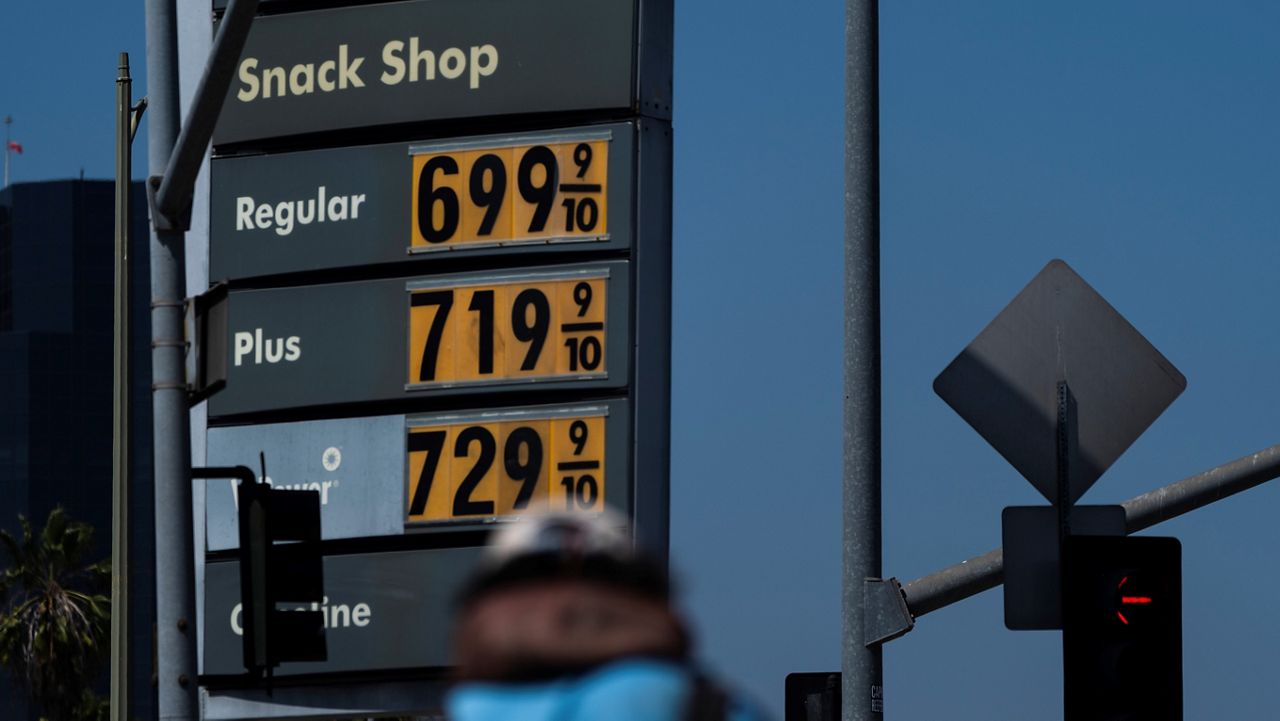Inflation in the United States rose 8.6% in May from a year prior, the highest rate in four decades, according to a report released Friday.
The Consumer Price Index for all products rose 1% in May from the month before, driven by rising prices of food, gasoline and shelter, according to the Bureau of Labor Statistics. Core inflation, which removes volatile items like food and fuel prices, remained steady at 6%.
America’s rampant inflation is imposing severe pressures on families, forcing them to pay much more for food, gas and rent and reducing their ability to afford discretionary items, from haircuts to electronics. Lower-income and Black and Hispanic Americans, in particular, are struggling because, on average, a larger proportion of their income is consumed by necessities.
Economists do expect inflation to ease this year, though not by very much. Some analysts have forecast that the inflation gauge the government reported Friday — the consumer price index — may drop below 7% by year’s end. In March, the year-over-year CPI reached 8.5%, the highest such rate since 1982.
High inflation has also forced the Federal Reserve into what will likely be the fastest series of interest rate hikes in three decades. By raising borrowing costs aggressively, the Fed hopes to cool spending and growth enough to curb inflation without tipping the economy into a recession. For the central bank, it will be a difficult balancing act.
Goods prices are expected to fall in the coming months. Many large retailers, including Target, Walmart and Macy’s, have reported that they’re now stuck with too much of the patio furniture, electronics and other goods that they ordered when those items were in heavier demand and will have to discount them.
Even so, rising gas prices are eroding the finances of millions of Americans. Prices at the pump are averaging nearly $5 a gallon nationally and edging closer to the inflation-adjusted record of about $5.40 reached in 2008.
Rampant inflation has posed a challenge to the Biden administration and Congressional Democrats, who are facing criticism from Republican opponents looking to retake the House and Senate in November, despite a robust jobs recovery from the COVID-19 pandemic.
The White House has blamed inflation on disruptions caused by Russia's invasion of Ukraine and recovery from the pandemic, while Republicans blame Democrats' spending plans, including the president's COVID-19 relief bill.
Surveys show that Americans see high inflation as the nation’s top problem, and most disapprove of President Joe Biden’s handling of the economy.
In a statement, President Joe Biden said that the report "underscores why I have made fighting inflation my top economic priority."
"While it is good to see critical 'core' inflation moderating, it is not coming down as sharply and as quickly as we must see," he said, before laying the blame at the feet of Russian President Vladimir Putin and his invasion of Ukraine.
"Putin’s Price Hike hit hard in May here and around the world: high gas prices at the pump, energy, and food prices accounted for around half of the monthly price increases, and gas pump prices are up by $2 a gallon in many places since Russian troops began to threaten Ukraine," Biden said. "Even as we continue our work to defend freedom in Ukraine, we must do more — and quickly — to get prices down here in the United States."
"My Administration will continue to do everything we can to lower prices for the American people," Biden said. "Congress must act urgently as well," calling for the legislature to send a bill lowering shipping costs to his desk "so we can lower the price of goods," as well as one that will "cut costs for families like energy bills and prescription drugs."
"The deficit has come down more under my watch as President than at any time in history, but if Congress would pass tax reform to make the wealthiest Americans and big corporations pay their fair share, we could reduce this inflationary pressure even more," he urged. "These are the most significant things Congress can do to help families now and complement the Federal Reserve’s efforts to bring inflation down."
"Prices at the pump are a major part of inflation, and the war in Ukraine is a major cause of that," the president said of gas prices. "The United States is on track to produce a record amount of oil next year, and I am working with the industry to accelerate this output. But it is also important that the oil and gas and refining industries in this country not use the challenge created by the war in Ukraine as a reason to make things worse for families with excessive profit taking or price hikes."
In remarks at the busy Port of Los Angeles on Friday, President Joe Biden highlighted his effort against record-high price increases and his attempts at easing supply chain backlogs as inflation rose to its highest level in decades last month. He also called out oil companies for their profits amid a deficit in global oil supply and high prices.
“I understand Americans are anxious,” he said. “America should also understand our economy has unique strengths that we can build on. The job market is the strongest it’s been since World War Two, notwithstanding inflation.”
The Biden administration this month has turned its focus to the economy and to their economic wins, such as the millions of jobs added since he took office and historically low unemployment.
The president said the U.S. is “better positioned” than other countries to recover from what he called a “global inflation” problem.
“I count recovery as going from where we are today in terms of the economy to stability,” he said. “It is strong as can be, but for inflation, but for gas and food.”
Spectrum News' Austin Landis contributed to this report.
